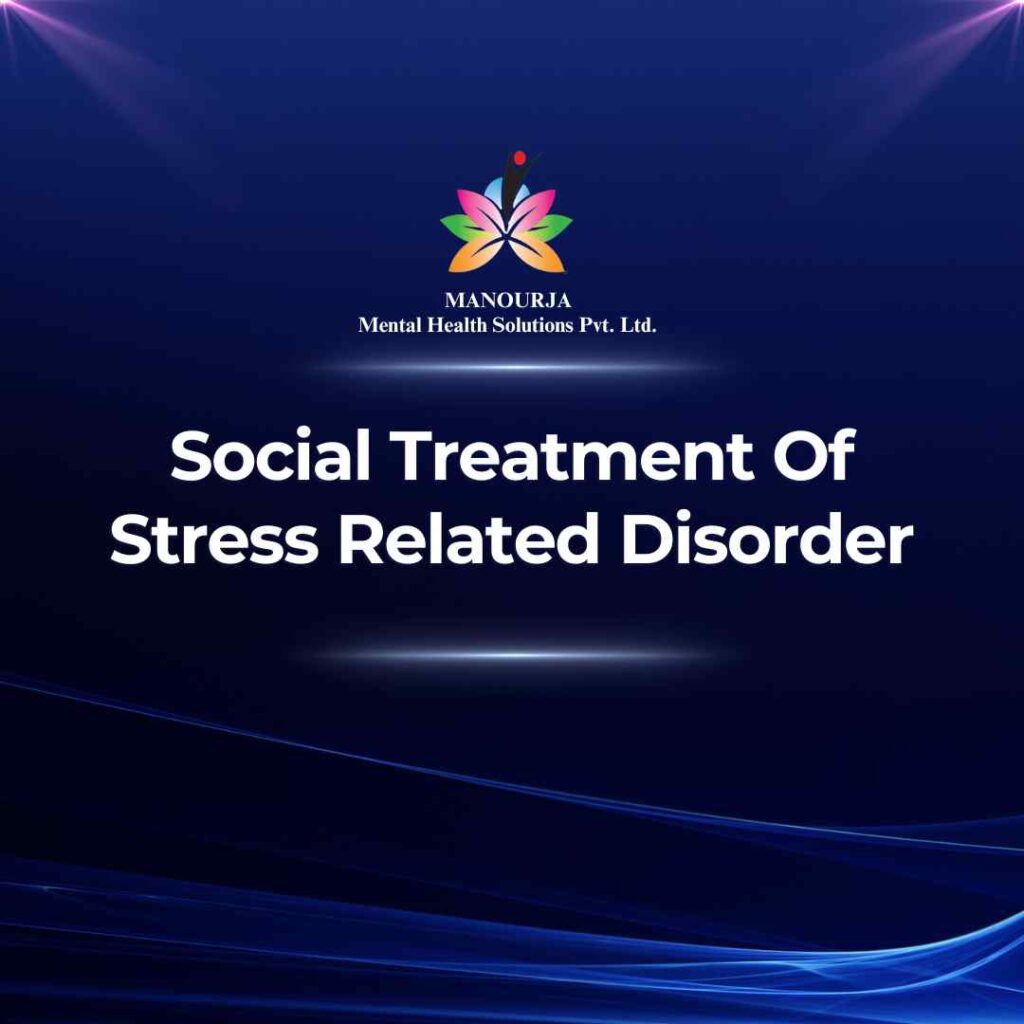Social Treatment of Stress Related Disorder

Social treatments for stress-related disorders focus on improving an individual’s relationships and interactions with others to enhance their mental health. These approaches acknowledge that human connection, support, and effective communication can be powerful tools in managing and potentially alleviating symptoms of stress-related disorders.
Here’s an exploration of various social treatments:
- Group Therapy: Group therapy provides a platform for individuals to come together and share their experiences under the guidance of a professional therapist. This setting allows participants to feel understood and supported by peers who are facing similar challenges. The group dynamic can help reduce feelings of isolation, provide diverse perspectives on coping strategies, and foster a sense of community and belonging.
- Family Therapy: Stress-related disorders often affect not just the individual but their entire family system. Family therapy involves treating the family as a unit to improve communication, resolve conflicts, and adjust family dynamics that may contribute to an individual’s stress. This form of therapy can help family members understand the disorder and learn how to support their loved one effectively.
- Couples Therapy: In couples therapy, partners work together to understand how stress-related disorders impact their relationship. The therapy helps both partners communicate better, solve relationship problems in a healthier way, and understand each other’s needs. Strengthening the relationship can provide significant emotional support and reduce stress for both partners.
- Social Skills Training: This treatment is especially helpful for those whose social anxiety may contribute to their stress-related disorders. Social skills training involves learning behaviors that enhance people’s interactions and communication with others, such as assertiveness training, conversation skills, and understanding social cues. Improving these skills can boost confidence in social settings and reduce stress.
- Community Involvement: Engaging in community service or group activities can enhance an individual’s sense of purpose and belonging. Being part of a community initiative or attending community-driven events allows for meaningful connections with others, which can significantly reduce feelings of loneliness and stress.
- Peer Support Groups: Peer support groups offer a safe environment for sharing experiences and coping strategies. These groups are typically informal and led by non-professionals who have experienced similar issues. The mutual support and understanding found in these groups can be a robust buffer against stress.
- Workplace Support Programs: Employers can play a crucial role in managing stress by providing workplace support programs. These might include stress management workshops, access to counseling services, and creating a supportive work environment that encourages work-life balance.
- Social Media and Online Communities: For those who may not have immediate access to in-person social support, online communities and social media platforms can be valuable. These digital spaces allow individuals to connect with others worldwide, share experiences, and find mutual support.
Social treatments are an essential aspect of managing stress-related disorders because they address the social determinants of mental health. By improving relationships and increasing social support, individuals can better manage stress and enhance their overall psychological well-being.
At MANOURJA, we believe in the transformative power of counseling. Our experienced therapists offer a safe and supportive space where you can explore your thoughts, emotions, and challenges. Through personalized counselling sessions, we’ll work together to develop coping strategies, build resilience, and achieve lasting positive change. Discover the path to a healthier, happier you with MANOURJA counselling services.
MANOURJA Rehabilitation Services
At MANOURJA, we’re dedicated to helping you in rebuild your life, after difficult times. Our rehabilitation services focus on understanding what you need to move forward, whether you’re recovering from addiction, trauma, or any psychological – social challenges. We create personalized plans, that are all about helping you, regain your strength and find hope again. With a caring team by your side, you’ll have the support to make real progress and take steps toward a brighter, healthier future.
